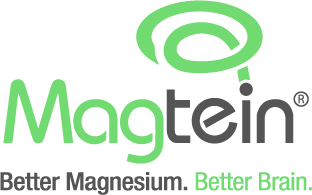What Is the Blood-Brain Barrier?
The blood-brain barrier (BBB) is one of the body’s most sophisticated protective systems. This tightly regulated network of endothelial cells lines the brain’s blood vessels, acting as a selective gatekeeper that controls what enters the brain from the bloodstream.
While the BBB safeguards the brain from harmful substances, it also makes it difficult for many nutrients to pass through – including magnesium. This presents a challenge, as magnesium plays a central role in supporting brain health and cognitive performance.*
Why Magnesium Matters for the Brain
Magnesium is involved in more than 300 biochemical reactions in the body, many of which occur in the brain. Within the nervous system, magnesium helps:
- Support synaptic plasticity, the foundation of learning and memory*
- Maintain healthy neurotransmitter activity through NMDA receptor regulation*
- Promote neuronal stability and optimal communication between brain cells*
- Support cellular energy production and protect against oxidative stress*
Maintaining optimal magnesium levels is essential for cognitive clarity, a calm mood, and healthy brain aging.*

The Challenge: Why Typical Magnesium Forms Don’t Reach the Brain
Although magnesium supplements are widely used to support muscle relaxation, cardiovascular health, and energy metabolism, most common forms – such as magnesium oxide, citrate, or glycinate – have limited ability to raise magnesium concentrations in the cerebrospinal fluid, the fluid surrounding the brain and spinal cord.
Because these forms do not efficiently cross the blood-brain barrier, their impact on brain magnesium levels tends to be modest. This limitation prompted researchers to search for a form of magnesium specifically designed to reach the brain.
What Makes Magtein Different
Magtein – scientifically known as magnesium L-threonate – was developed by neuroscientists at MIT to overcome the limitations of conventional magnesium forms.
The Role of L-Threonic Acid
Magtein combines magnesium with L-threonic acid, a metabolite of vitamin C. This unique pairing increases magnesium’s solubility and facilitates more efficient transport across cell membranes.*
Crossing the Blood-Brain Barrier
Preclinical and clinical studies indicate that magnesium L-threonate elevates magnesium levels within the brain, demonstrating its ability to cross the BBB – something most other forms of magnesium rarely achieve.*
Sustaining Brain Magnesium Levels
Once absorbed, Magtein helps maintain elevated brain magnesium concentrations for extended periods, supporting long-term neurological function and resilience.*
Why Crossing the BBB Matters
By delivering magnesium effectively to the brain, Magtein helps support key areas of cognitive health:
- Learning and Memory: Supports NMDA receptor activation, promoting the brain’s ability to form new connections and retain information.*
- Focus and Attention: Contributes to balanced neurotransmitter activity, supporting clarity and concentration.*
- Calm and Stress Response: Helps regulate stress-response systems, promoting relaxation and emotional balance.*
- Healthy Brain Aging: Preclinical research suggests that elevated brain magnesium levels may help maintain synaptic density and support cognitive performance over time.*

The Science Behind Magtein
Research Overview
- Preclinical Research: Landmark studies at MIT demonstrated that magnesium L-threonate increased brain magnesium concentrations by 7-15% and enhanced learning and memory performance in animal models compared with other magnesium forms (Slutsky et al., Neuron, 2010).*
- Human Studies: Clinical research found that magnesium L-threonate supplementation was associated with improved working memory, attention, and executive function in adults with cognitive complaints (Liu et al., Journal of Alzheimer’s Disease, 2016).*
While further research is ongoing, current evidence supports the ability of Magtein to enhance magnesium bioavailability in the brain, potentially contributing to cognitive benefits.*
How to Use Magtein
Magtein is typically taken in divided doses – morning and evening – to maintain consistent magnesium levels throughout the day. It is generally well tolerated and can be taken with or without food.
As with any supplement, follow product directions and consult a healthcare professional before use, especially if you are pregnant, nursing, taking medication, or have a medical condition. Cognitive benefits from Magtein may develop gradually as magnesium levels build within brain tissue over several weeks of consistent supplementation.*

Limitations, Precautions, and Research Gaps
Although research on magnesium L-threonate is promising, not all findings have been replicated in large-scale human trials. Individual results may vary based on age, lifestyle, and baseline magnesium status.
Magtein is not intended to diagnose, treat, cure, or prevent any disease, and should be used as part of a healthy lifestyle that includes a balanced diet, physical activity, and adequate sleep.
The Takeaway
The blood-brain barrier protects the brain but also makes it challenging for nutrients to reach where they are needed most. Magtein stands apart as the only form of magnesium shown in scientific studies to effectively cross the BBB and meaningfully raise brain magnesium levels.*
By supporting neuronal function, magnesium L-threonate may help maintain learning, memory, focus, and overall brain health, representing a significant advancement in nutritional neuroscience.*
References
- Slutsky I, Abumaria N, Wu LJ, et al. Enhancement of learning and memory by elevating brain magnesium. Neuron. 2010;65(2):165-177. doi:10.1016/j.neuron.2010.01.009
- Hausenblas HA, Rogers N, Camcho D, et al. Magnesium L-Threonate Improves Sleep Quality and Daytime Functioning in Adults with Self-Reported Sleep Problems: A Randomized Controlled Trial. Sleep Medicine X. 2024;6:100095. doi:10.1016/j.sleepx.2024.100095
- Zhang N, Li Y, Zeng X, et al. A Magtein, Magnesium L-Threonate-Based Formula Improves Brain Cognitive Functions in Healthy Chinese Adults. Front Aging Neurosci. 2022;14:1025181. doi:10.3389/fnagi.2022.1025181
- National Institutes of Health, Office of Dietary Supplements.Magnesium – Health Professional Fact Sheet. Updated January 4, 2023. Accessed October 12, 2025. https://ods.od.nih.gov/factsheets/Magnesium-HealthProfessional/
FDA Disclaimer
These statements have not been evaluated by the Food and Drug Administration. This product is not intended to diagnose, treat, cure, or prevent any disease.



